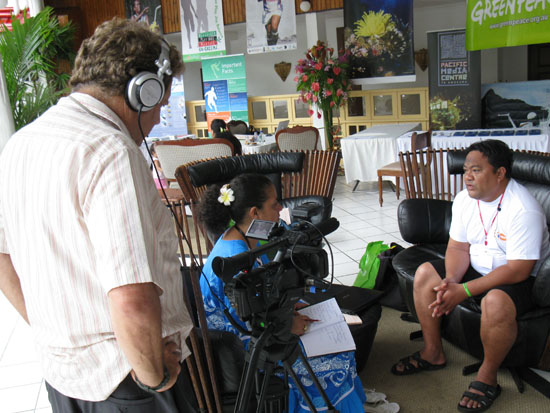
FIJI >> Fiji National University
>> University of the South Pacific
NZ >> AUT University (Pacific J-studies)
>> Other NZ J-schools
PNG >> Divine Word University
>> University of PNG
SAMOA >> National University of Samoa
SOLOMON ISLANDS >> Solomon Islands College for Higher Education
TONGA >> Tonga Institute for Higher Education
VANUATU >> Vanuatu Institute of Technology
*** PACMAS
Situated at the crossroads of Melanesia and Polynesia, the Fiji Islands were “discovered” in 1643 by Abel Tasman, a Dutch explorer. In 1774, even Captain Cook anchored here, but it was Captain William Bligh of (Mutiny on the Bounty) fame that finally made them famous.
In 1874, Fiji became a British Colony.
Fiji gained its independence in 1970, after nearly a century of British control. Tourism is Fiji's main source of income, followed by the sugar and garment industries. It is also rich in gold, coconut oil, seafood and timber.
The islands are a popular tourist destination.
Fiji has one of the strongest news media industries in the Pacific region and hosts two journalism schools at the regional University of the South Pacific and Fiji National University.
Political status: Military appointed regime
Population: 849,000 (Fiji Census 2009)
Capital City: Suva (177,000)
Languages English (official), Fijian, Hindi
Currency: Fiji dollar
Main religions: Christian, Hindu, Muslim
Land area: 118,270 sq km (7,054 sq m)
Country profile
Google map
Journalism schools:
- Fiji National University (FNU)
- University of the South Pacific (USP)



